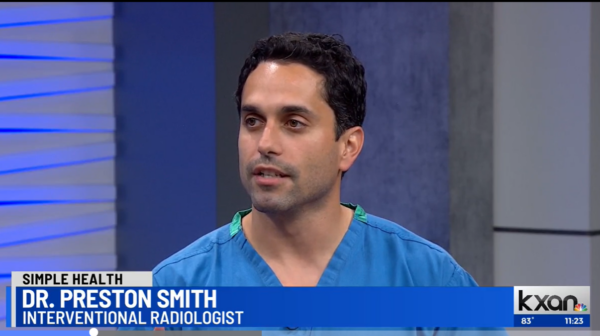What you need to know about Hysterectomy versus Uterine Fibroid Embolization
A hysterectomy is surgery to remove the uterus. It can significantly impact a woman’s life, both physically and emotionally. Summitt Interventional Radiology wants women to understand the reasons for a hysterectomy and the different types of procedures. More importantly, women should know about Uterine Fibroid Embolization (UFE), an alternative treatment to a hysterectomy. It is important for women to know the difference between hysterectomies and Uterine Fibroid Embolization (UFE) and when UFE may be appropriate.
Reasons for a hysterectomy
Some of the most common reasons include
- Fibroids: Non-cancerous tumors in the uterus that can cause heavy bleeding, pain, and pressure.
- Endometriosis: A condition where tissue that lines the uterus grows outside of it, causing pain, irregular bleeding, and infertility.
- Adenomyosis: This is when the tissue that lines the uterus grows into the muscular wall but not outside of the uterus, causing heavy bleeding and pain.
- Uterine prolapse: This happens when the uterus drops down into the vagina due to weakened pelvic muscles.
- Abnormal uterine bleeding: Heavy or prolonged bleeding that cannot be controlled with other treatments.
Out of the above-mentioned reasons for a hysterectomy, fibroids and adenomyosis can be managed with non-surgical outpatient procedures, uterine fibroid embolization or uterine artery embolization, respectively.
Types of hysterectomies
Hysterectomies can be performed through different surgical approaches
- Abdominal hysterectomy: This involves a large incision in the abdomen.
- Vaginal hysterectomy: The uterus is removed through the vagina.
- Laparoscopic hysterectomy: Less invasive surgery that uses small incisions and a camera to guide the surgery.
- Robotic hysterectomy: Similar to laparoscopic, but with the assistance of a robotic system.
Compared to UFE, all of these surgeries involve larger or more incisions.
What to expect during recovery of a hysterectomy
Recovery time varies depending on the type of hysterectomy and approach. You can generally expect to spend a few days in the hospital and around 2-6 weeks recovering at home.
Here are some things to expect during recovery
- Pain: You will likely experience pain and discomfort after surgery, typically managed with some opioids and NSAIDs.
- Vaginal bleeding: Some vaginal bleeding is normal for several weeks after surgery.
- Fatigue: You may feel tired and need more rest than usual.
- Emotional changes: It’s common to experience a range of emotions after a hysterectomy, including sadness, anxiety, and relief.
You will be instructed to avoid heavy lifting, strenuous exercise, and sexual intercourse for several weeks. Compared to UFE, the recovery is significantly longer. The typical recovery following UFE is 4-5 days, and the ONLY restrictions are to avoid heavy lifting for 48 hours.
Life after a hysterectomy verses UFE
A hysterectomy can bring significant changes to a woman’s life.
- Menopause: If your ovaries are removed during the hysterectomy, you will experience surgical menopause.
- Infertility: You will no longer be able to get pregnant.
- Sexual dysfunction: Many women experience some type of new sexual issues, which may include loss of libido, difficulty with reaching orgasm, diminished sensation, painful intercourse, vaginal shortening, loss of penile penetration, and loss of lubrication
- Urinary Incontinence: some women will develop stress urinary incontinence within the years following a hysterectomy, and some of those women will require additional surgery to address it.
- Depression: An estimated 50% of women have feelings of depression following hysterectomy, some of which do not resolve in the month following surgery.
Uterine fibroid embolization does not carry a risk of sexual dysfunction or urinary incontinence. More often than not, women who undergo UFE have improvement in their sexual and urinary function. Also, women can still potentially get pregnant after UFE!
Talk to our Austin interventional radiologist about UFE
If you’re debating between a hysterectomy versus UFE, discussing your options thoroughly with your doctors is crucial. We can help you understand the differences between the two approaches, the recovery processes, and the potential long-term effects. Remember, you are not alone, and we are here to support you through this journey. Contact us to learn if UFE is right for you.


